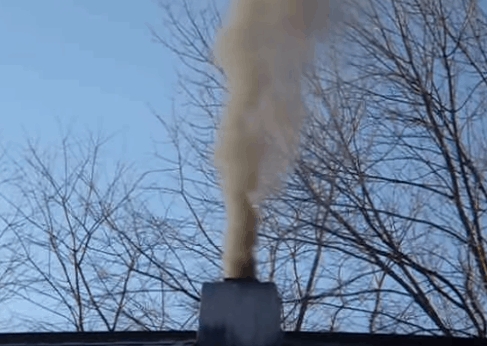Now is a good time to consider one last chimney sweep before the warmer weather arrives to clear away any residual debris and enter the spring with your chimney in a clean, tip-top condition, especially if you burn wood.
Cleaning your chimney now or as soon as you decide to stop using it until autumn means when autumn inevitably arrives, you won’t have to sweep away the remnants of last season’s debris. That said, we also recommend a chimney sweep before the fire season arrives in September/October, as although the chimney may not be in use, things can accumulate in them over the summer – including bird nests!
You are able to search for a local chimney sweep here – https://www.hetas.co.uk/consumer/services/chimney-sweeps/

How often should I have my chimney swept?
HETAS recommends that you should have your chimney swept at least twice a year when burning wood and at least once a year when burning smokeless fuels. You should also look to use a HETAS-registered chimney sweep. There are a number of reasons for this:
1. The sweep would have received the necessary training to clean your chimney
2. You will receive documentation that your stove has been swept
3. You will receive peace of mind knowing your chimney has been swept by a professional
HETAS stands for Heating Equipment Testing and Approvals Scheme, the UK’s official body recognised by the government to authorise solid fuel domestic heating appliances, biomass, fuels and services. HETAS is the organisation responsible for certifying installers, providing training, and registering competent installers (including chimney sweeps) who can handle both the paperwork and selection of the appropriate installation for your home.
The dangers of not having your chimney swept
There are over 4,000 recorded chimney fires in the UK each year. Many of these could have been prevented by taking preventative maintenance. Creosote and soot will form over time in your chimney. If you burn wet wood or unsuitable fuel, this congestion will significantly increase. When you have your chimney swept, this debris will be removed. It’s not just creosote and soot that will cause problems – over the summer months, you may have birds taking up residence in your chimney. Jackdoors and swallows are particularly keen on nesting in wide chimneys, so extra special care should be taken here.
Prevention is better than cure, and fitting a cowl is a wise move – it will stop birds from entering your chimney in the first place. Not only is a nest a fire hazard if you were to light a fire, but it would also cause devastation to the poor birds and their family!
If there is an active bird nest in your chimney, you must not light a fire until the birds have vacated their nests. It’s an offence to intentionally take, damage or destroy any active wild bird nest in the UK under the Wildlife and Countryside Act 1981.
How do you tell your chimney needs to be swept?
It’s much safer to use a time-based measure to know when to have your chimney swept. This is not always possible, however, for example, if you have moved into a new property. There are some telltale signs to be aware of:
1. If your room fills with smoke when a fire is lit
2. There is a bad odour coming from the chimney
3. Visible tar deposits or soot dropping into fireplace
4. If your fire takes a long time to start
The fire season is almost at the end of Winter 2023/2024. Getting prepared now means when autumn arrives, you will be ready!








